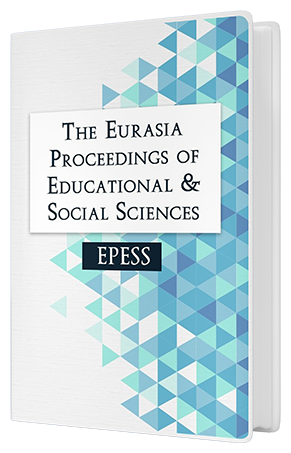The Effect of Inquiry Based Chemistry Experiments Practıces on Inquiry Skills and Scientific Creativity
Keywords:
Inquiry-based practice, Chemistry experiment, Inquiry skills, Scientific creativityAbstract
Inquiry based research requires individuals to think about a subject, to reason, to conduct indepth research and to discuss the results. Inquiry based research lead the individuals to explore knowledge, investigation, and discovering facts. Permanent learning in science is thought to occur through inquiry, research and exploration. For this reason, in disciplines such as chemistry learning should be conducted by questioning, researching and exploring, that is, inquiry-based research. The purpose of this research is to investigate the effect of inquiry based chemistry experiment practices on the inquiry skills and scientific creativity of prospective teachers. The sampling consisted of prospective chemistry teachers studying at Hacettepe University. In the research, inquiry skills scale and scientific creativity test were used as data collection tools. As a result of the research, it has been determined that inquiry based chemistry experiment practices are an effective approach in order to improve inquiry skills and scientific creativity of teacher candidates. The research findings also reveal that the inquiry-based chemistry experiment practices allow the chemistry to be more understandable, given the opportunity to practice the theoretical knowledge and makes chemistry experiments fun.Downloads
Published
Issue
Section
License
Copyright (c) 2018 The Eurasia Proceedings of Educational and Social Sciences

This work is licensed under a Creative Commons Attribution-NonCommercial-ShareAlike 4.0 International License.
The articles may be used for research, teaching, and private study purposes. Any substantial or systematic reproduction, redistribution, reselling, loan, sub-licensing, systematic supply, or distribution in any form to anyone is expressly forbidden. Authors alone are responsible for the contents of their articles. The journal owns the copyright of the articles. The publisher shall not be liable for any loss, actions, claims, proceedings, demand, or costs or damages whatsoever or howsoever caused arising directly or indirectly in connection with or arising out of the use of the research material. All authors are requested to disclose any actual or potential conflict of interest including any financial, personal or other relationships with other people or organizations regarding the submitted work.




